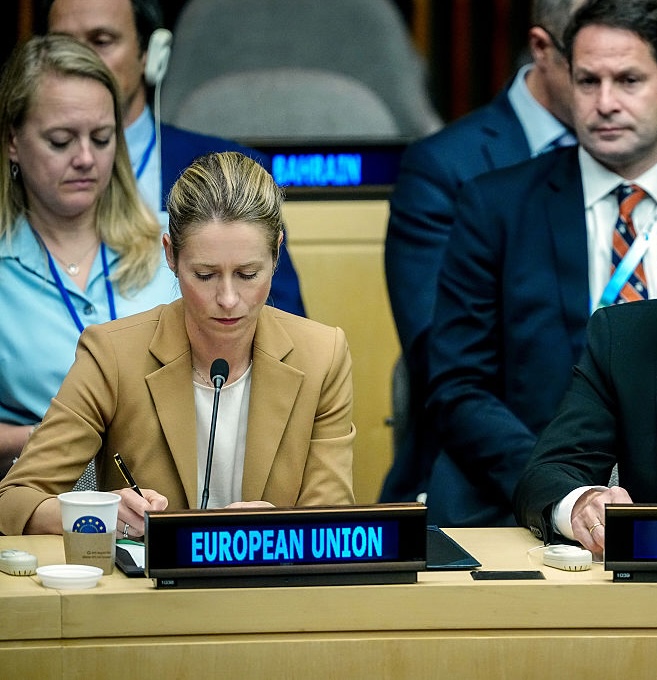The return of widespread sanctions against Iran’s nuclear programme “must not be the end of diplomacy” with the Islamic republic, the European Union’s top diplomat said on Sunday.
While the bloc will follow the United Nations in reimposing sanctions, “a sustainable solution to the Iranian nuclear issue can only be achieved through negotiations”, Kaja Kallas said in a statement.
Kallas’ follows the activation of the so-called “snapback” mechanism under UN Security Council Resolution 2231 by France, Germany and the UK on Sunday, after Tehran failed to resume full cooperation with the International Atomic Energy Agency (IAEA).
The measure restores sanctions suspended under the 2015 nuclear deal, targeting Iran’s uranium enrichment, arms trade and ballistic missile programme.
Israel welcomed the reinstatement of UN sanctions against Iran, calling the decision a “response to Iran’s ongoing violations” by the Islamic Republic in its nuclear program.
“The goal is clear: prevent a nuclear-armed Iran,” stated the Israeli Foreign Ministry stated on X, adding that the world must use every available means to achieve this.
Iranian Foreign Minister Abbas Araghchi told the UN last week that Tehran may suspend its inspection agreement with the IAEA, warning that sanctions are “hostile actions” incompatible with diplomacy. Supreme Leader Ali Khamenei also ruled out direct talks with Washington earlier this month, accusing the U.S. of seeking “submission rather than negotiation”.
Brussels maintains its own sanctions regime on Iran, covering human rights abuses, proliferation risks and Tehran’s support for Russia’s war in Ukraine, renewed until April 2026.
This article has been updated with Israel’s reaction.
Magdalena Kensy participated in reporting.
(cs)
